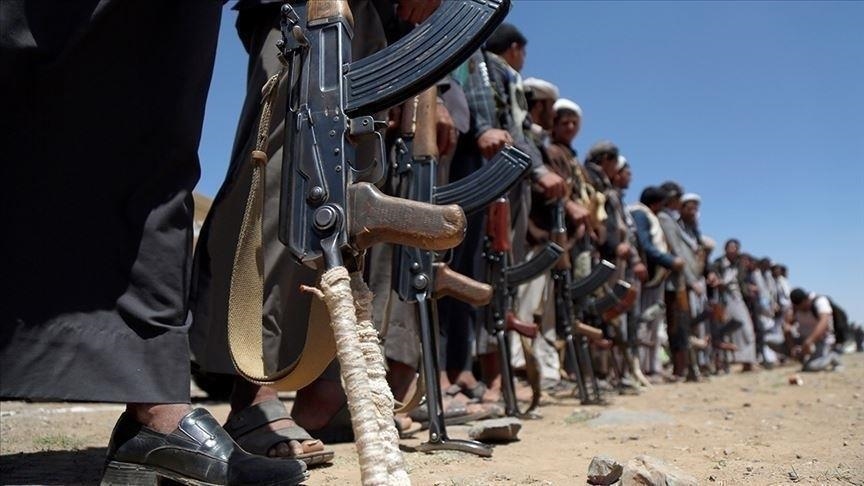The ongoing conflict in Yemen has claimed tens of thousands of lives and displaced millions of people, making it one of the worst humanitarian crises in the world today. The conflict has been fueled by a proxy war between Iran and Saudi Arabia, with both countries supporting opposing factions in the country. However, recent developments suggest that political ties between Iran and Saudi Arabia may lead to a ceasefire in Yemen.
In this article, we will explore the factors that have contributed to the conflict in Yemen, the recent developments in the political ties between Iran and Saudi Arabia, and the potential impact on the conflict in Yemen. We will also discuss how these developments can affect the geopolitical landscape of the Middle East.
The Conflict in Yemen
The conflict in Yemen began in 2014 when Houthi rebels, who are Shia Muslims, seized control of the capital city, Sanaa. The Houthis are supported by Iran, which is predominantly Shia, while the Yemeni government is supported by Saudi Arabia, which is predominantly Sunni.
The conflict escalated in 2015 when a Saudi-led coalition launched a military intervention in Yemen, with the aim of restoring the Yemeni government. The conflict has since turned into a protracted war, with both sides engaging in airstrikes and ground battles that have resulted in thousands of casualties.
The situation in Yemen has been exacerbated by a humanitarian crisis, with millions of people facing famine, disease, and displacement. The United Nations has called it the world's worst humanitarian crisis, with over 24 million people in need of assistance.
Recent Developments in Iran-Saudi Arabia Ties
The relationship between Iran and Saudi Arabia has been fraught with tension for decades, with both countries vying for influence in the Middle East. However, there have been recent developments that suggest a possible thawing of relations between the two countries.
In September 2021, Saudi Arabia's foreign minister, Prince Faisal bin Farhan Al Saud, said that his country was open to talks with Iran, and that he hoped for a "good and positive" relationship with its neighbor. In response, Iran's foreign ministry spokesman, Saeed Khatibzadeh, said that Iran was also willing to engage in talks with Saudi Arabia.
This development follows the election of Ebrahim Raisi as Iran's president in June 2021. Raisi is a hardliner who has been critical of the United States and Saudi Arabia in the past. However, he has also expressed a desire to improve relations with neighboring countries, including Saudi Arabia.
Impact on the Conflict in Yemen
The potential for improved political ties between Iran and Saudi Arabia could have a significant impact on the conflict in Yemen. If the two countries are able to reach a ceasefire agreement, it could lead to an end to the protracted war and a reduction in the suffering of the Yemeni people.
However, there are also concerns that a ceasefire could be difficult to achieve, given the complexity of the conflict and the involvement of multiple factions. Moreover, there are hardliners in both Iran and Saudi Arabia who may oppose a rapprochement between the two countries.
Geopolitical Implications
The conflict in Yemen has broader geopolitical implications, given its location in the Middle East and its proximity to major shipping lanes. If a ceasefire is achieved, it could lead to a realignment of political alliances in the region.
For example, Iran's improved relations with Saudi Arabia could lead to a reduction in its support for the Houthis in Yemen, which could, in turn, reduce tensions between Iran and Saudi Arabia. It could also lead to increased cooperation between Iran and Saudi Arabia on issues such as energy security and regional stability.
Conclusion
The conflict in Yemen has had a devastating impact on the country's people and economy. However, recent developments in the political ties between Iran and Saudi Arabia suggest a potential breakthrough in finding a resolution to the ongoing conflict.
While there are concerns that achieving a ceasefire may be difficult, the potential benefits of a peaceful resolution are significant. It could lead to a reduction in the suffering of the Yemeni people, a realignment of political alliances in the Middle East, and increased cooperation between Iran and Saudi Arabia.
As the situation in Yemen continues to evolve, it is important for the international community to support efforts to find a peaceful resolution to the conflict. By working together, we can help to end the suffering of the Yemeni people and promote stability and security in the region.

Comments
Post a Comment